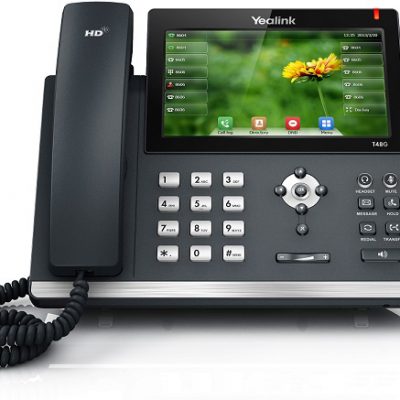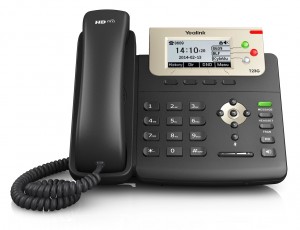
Before you sign up!
Whenever there’s new technology, there’s always a wave of people who greet it with open arms but never stop to ask a few key questions. Yes, people just want the next best thing – no questions asked.
Therein lies the mistake. In some cases, software and hardware can be expensive, while contracts can lock up consumers for years. When it comes to VoIP, there are ten key questions to ask potential providers prior to signing on the dotted line.
1. What are my initial up-front fees? What features cost extra?
The initial conversation should always begin with the bottom line. Providers often have a monthly charge for a specific amount of time. Ask the provider to be specific about:
- Equipment cost: Discuss if there is a fee to add an additional phone or if the monthly charges are for minutes only. Additionally, if you purchase phones from the provider, inquire if the phones will be compatible with another provider should you decide to switch in the future or if the provider tanks. (More on that in question 10.)
- Contract length
- Early cancellation fees, if any: By the way, if the provider is not supplying equipment, but you’ve been paying for it, is there still a cancellation penalty? If you decide to change your policy, can it be done without incurring a penalty or restarting a contractual time frame?
2. What about additional fees?
A huge appeal of switching to a VoIP system is lower costs, but those costs can quickly increase based on extra features and services. Some areas that can increase monthly payments are:
- Automatic forwarding, which is essential in the event of an Internet outage
- Basic but essential features, like auto-attendant, voicemail to email, call forwarding, and more
- Geographic areas: Some plans will only cover the lower 48 states, while others may cover Alaska, Hawaii, and Canada
- Consider which countries your business will most likely be calling, and inquire about the charges
3. What about faxing services?
Depending on your faxing needs, the VoIP line may be adequate. For a fax-heavy business, though, you may be better off keeping a PSTN (copper line).
4. Will the service work with my current equipment?
It’s important to know up front if your current equipment will be able to work with your new VoIP service. Why re-invent the wheel? Still, there may be some equipment that your provider will have to supply and this can lead to additional costs.
5. What sort of technical support is there and where is the support department located?
For peace of mind, it’s imperative to know there will be someone available to walk you through any glitches. Knowing the hours of support operations and the time zone location is critical. If your business is in one zone and support is in another, then there might be several hours before support can even begin.
Additionally, if the provider has a support center overseas, it may be indicative of their trying to save costs. Ask what the average tenure of the support staff is so you can have a general idea of their experience.
6. How will the provider notify me of a service disruption – and can I see a history of your alerts?
It’s a good idea to get a list of the provider’s service disruption history and then compare that data with their marketing claims. At the same time, ask about how the provider will notify you about any service disruptions.
7. What about my on-the-go staff?
With more and more employees telecommuting or out in the field, it is important to have a provider that has a mobile solution.
8. How is the call quality?
Although it’s difficult to sample calls from providers, it’s still a worthwhile question to ask. Some providers have a better sounding network than others, and that may or may not be reflected in the cost.
9. Is the system 911 or E911 compliant?
The FCC says it should be, but it’s always a good idea to double check and to learn how the system works. This is an area you don’t want to learn about while experiencing an emergency.
10. What happens if the provider tanks on the contract?
This is the question that no one ever wants to ask – but you must. In many cases, you’ve just purchased equipment and a package of service. If the provider folds, will the equipment be compatible with another provider?
Have the conversation and take time to do research on the provider’s website and Google, and keep your eyes open for any pending lawsuits and/or mergers.
Looking for answers?
If these are the questions you have, CallSprout has answers. We look forward to hearing from you so our team of experts can make sure you’re connected with confidence and security. Review our list of services and contact us through our online form to see exactly how much you can save by moving to VOIP.





